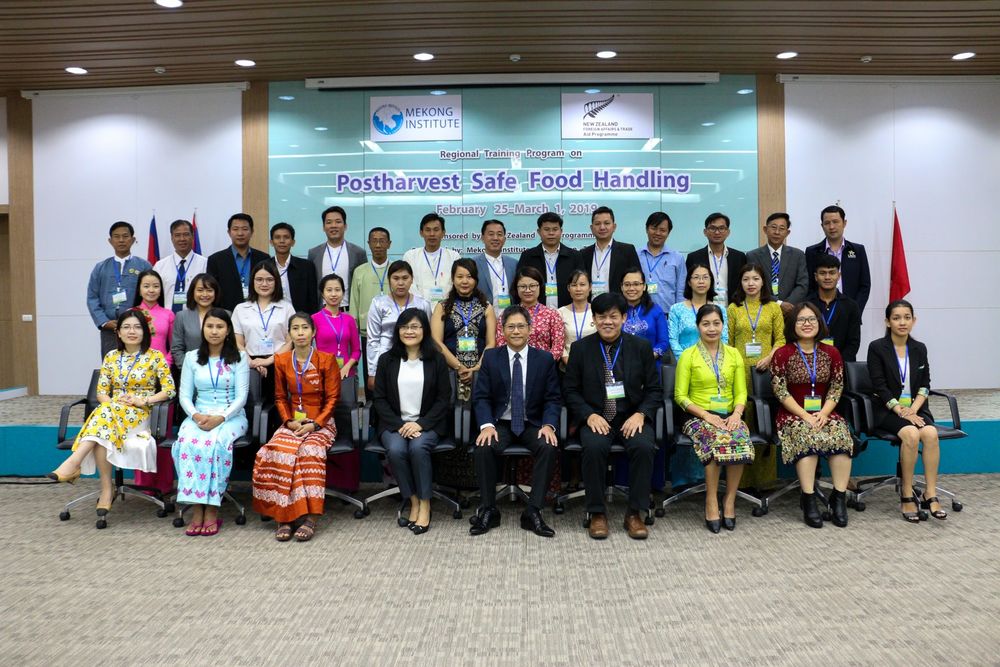“Proper postharvest handling is important in minimizing contamination, preventing food loss and extending the shelf life of fruits and vegetables, and this is also closely linked to the wellbeing of farmers,” Dr. Watcharas Leelawath, MI Executive Director shares as he opens today’s regional training program on Postharvest Safe Food Handling at the MI Residential Training Centre. “The majority of the workforce in the region is comprised of smallholder farmers, and using the knowledge you will gain from this training can help improve the livelihood of these farmers,” he adds.
The five-day training is the first in a series of food safety training programs being organized in 2019 as part of Mekong Institute’s PROSAFE Project: Promoting Safe Food for Everyone. Emphasizing the importance of good practices from food production to processing and preparation, the course introduces essential postharvest practices including standard operating procedures for documenting postharvest handling practices to reduce food safety risks. Twenty-eight participants working in postharvest and food safety management in government agencies, academe, and the private sector in Cambodia, Lao PDR, Myanmar and Vietnam (CLMV) will be learning from postharvest experts, Dr. Jun Acedo, postharvest expert from the Philippines and Ms. Arunee Pormkhamput, Agricultural Systems expert from Khon Kaen University in Thailand.
Supported by the New Zealand Aid Programme (NZAP), the five-year PROSAFE Project is designed to build the technical capacity of CLMV agricultural and food safety officers, academics and private actors in food safety and assist them in the preparation and implementation of food safety regulations and standards for select value chains.








